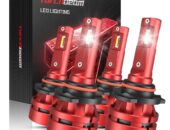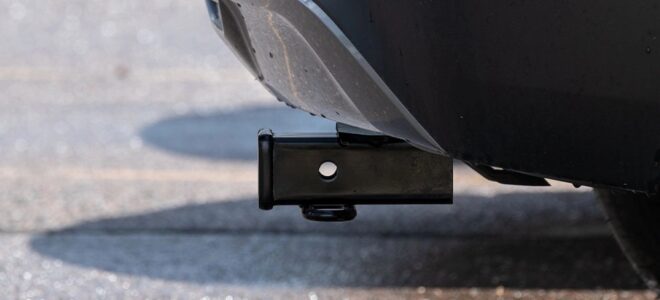
If you’re considering adding a trailer hitch to your vehicle, you’re likely wondering if trailer hitches are universal or vehicle-specific?
It’s a great question—and an important one. Trailer hitches are a vital tool for expanding what your vehicle can do, from towing a camper to mounting a bike rack or carrying extra cargo.
But choosing the wrong hitch could lead to poor fit, reduced safety, or even damage to your vehicle. So, is there a one-size-fits-all option, or do you need to find something custom?
The answer: Some trailer hitches are universal, but many are vehicle-specific—and for good reason. Let’s explore the differences, the pros and cons of each type, and how to choose the right hitch for your needs.
What Are Universal Trailer Hitches?
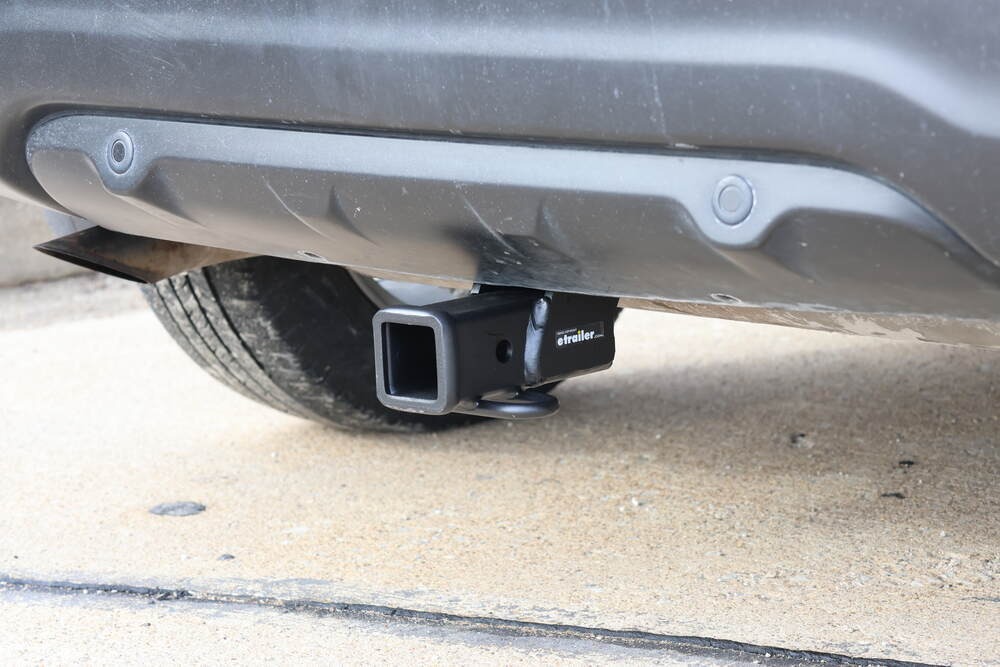
Source: etrailer.com
Universal trailer hitches are designed to fit a wide range of vehicles, rather than one specific make or model. These are typically adjustable, and many are intended for light-duty applications, such as:
- Small utility trailers
- Cargo carriers
- Bike racks
- Light towing with sedans, SUVs, or minivans
These hitches often feature adjustable mounting brackets or a clamp-on design that can be adapted to fit multiple vehicles.
Pros of Universal Hitches:
- Flexibility: Can be used on different vehicles, especially if you switch cars often.
- Availability: Easier to find and often stocked at general auto parts stores.
- Affordability: Tend to cost less than custom-fit options.
Cons of Universal Hitches:
- Fitment Issues: May not align perfectly with your vehicle’s frame or mounting points.
- Less Stability: Can be less secure than a hitch built for your vehicle.
- Limited Towing Capacity: Often suitable for lighter loads only.
What Are Vehicle-Specific Trailer Hitches?

Source: bigtextrailerworld.com
Vehicle-specific trailer hitches are engineered to fit the exact frame, mounting points, and clearances of a particular vehicle make, model, and year. Brands like CURT, Draw-Tite, and Reese design these hitches based on factory specs.
For example, a hitch designed for a 2021 Toyota RAV4 will not be the same as one for a 2017 Ford Escape. The bolt patterns, undercarriage layout, bumper shape, and even the exhaust routing can differ significantly between models.
Pros of Vehicle-Specific Hitches:
- Perfect Fit: Designed to match the contours and bolt locations of your car.
- Easy Installation: Most require no drilling and use existing holes in the frame.
- Better Aesthetics: Tuck neatly under the vehicle and look more like factory equipment.
- Higher Capacity: Generally rated to tow more weight than universal options.
Cons of Vehicle-Specific Hitches:
- Higher Cost: Usually more expensive than universal hitches.
- Less Flexible: Only fits one type of vehicle (or closely related models).
- Availability: May need to be ordered if not stocked locally.
So, Which One Should You Choose?
The right choice depends on how you plan to use your trailer hitch and what kind of vehicle you drive. Here’s a quick breakdown:
Go With a Universal Hitch If:
- You’re towing light loads only (under 2,000 lbs)
- You need a temporary solution or plan to use it across several vehicles
- You’re using it for non-towing purposes, like attaching a bike rack
Choose a Vehicle-Specific Hitch If:
- You plan to do regular or heavy towing
- You want clean, secure installation
- Your vehicle is less common or newer, where fitment is more critical
- You want to maximize towing safety and performance
The Role of Hitch Classes
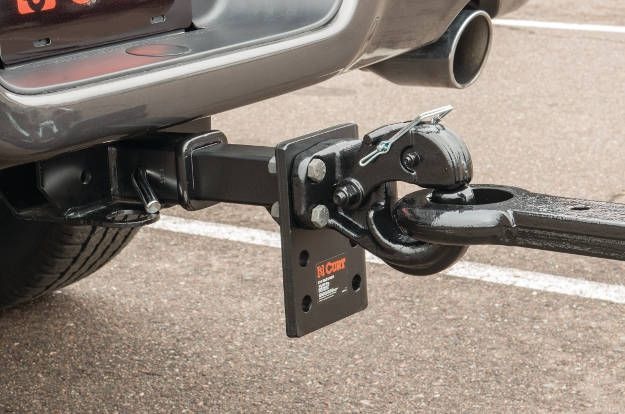
Source: pinterest.com
Regardless of whether the hitch is universal or vehicle-specific, all hitches fall into a “class” based on their weight rating and receiver size:
- Class I: Up to 2,000 lbs – light-duty towing or bike racks
- Class II: Up to 3,500 lbs – small trailers, pop-up campers
- Class III: Up to 6,000 lbs – boats, utility trailers
- Class IV: Up to 10,000 lbs – larger trailers, RVs
- Class V: Up to 20,000 lbs – commercial or industrial towing
Vehicle-specific hitches are more commonly available in Class III and above, while universal hitches usually top out at Class I or II.
What About the Receiver Size?
Another consideration is the receiver tube size, which determines what accessories or trailers you can attach. The standard sizes are:
- 1¼” (Class I & II): Great for bike racks and light loads
- 2″ (Class III & IV): The most versatile and common size
- 2½” or 3″ (Class V): Used for heavy-duty towing
Make sure the hitch class and receiver size match your needs—and your vehicle’s towing capacity.
Installation Considerations
Whether universal or vehicle-specific, installation matters. Here are some factors to keep in mind:
- Do you need to drill? Most vehicle-specific hitches require no drilling, while universal ones might.
- Will it interfere with your bumper or exhaust? Some hitches may require modifications.
- Can you install it yourself? Many hitches can be installed with basic tools in your driveway, but others are best left to a professional.
Also, don’t forget about wiring—especially if you’re towing a trailer with lights. You’ll likely need a wiring harness that matches your vehicle’s setup.
Final Thoughts: Universal vs. Vehicle-Specific Hitches
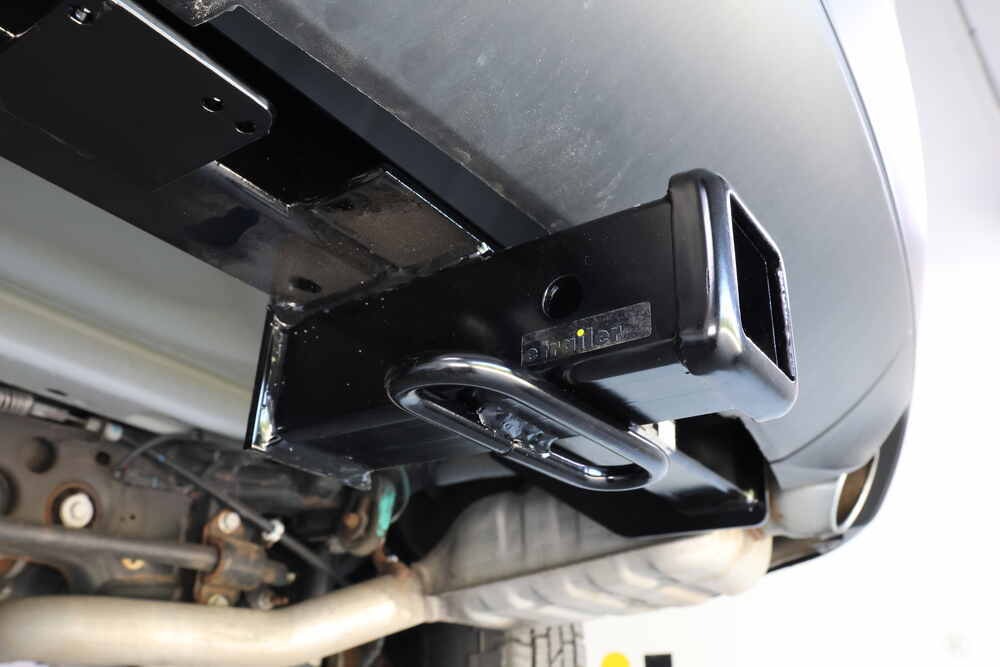
Source: etrailer.com
While universal hitches can work in some situations, they’re best suited for lighter, more temporary use. If you’re serious about towing—especially anything over a few thousand pounds or doing it frequently—a vehicle-specific hitch is the safer and smarter investment.
Vehicle-specific hitches offer superior fit, performance, and peace of mind. They’re built to complement your vehicle’s frame and towing capacity, ensuring you don’t compromise safety or damage your car.

